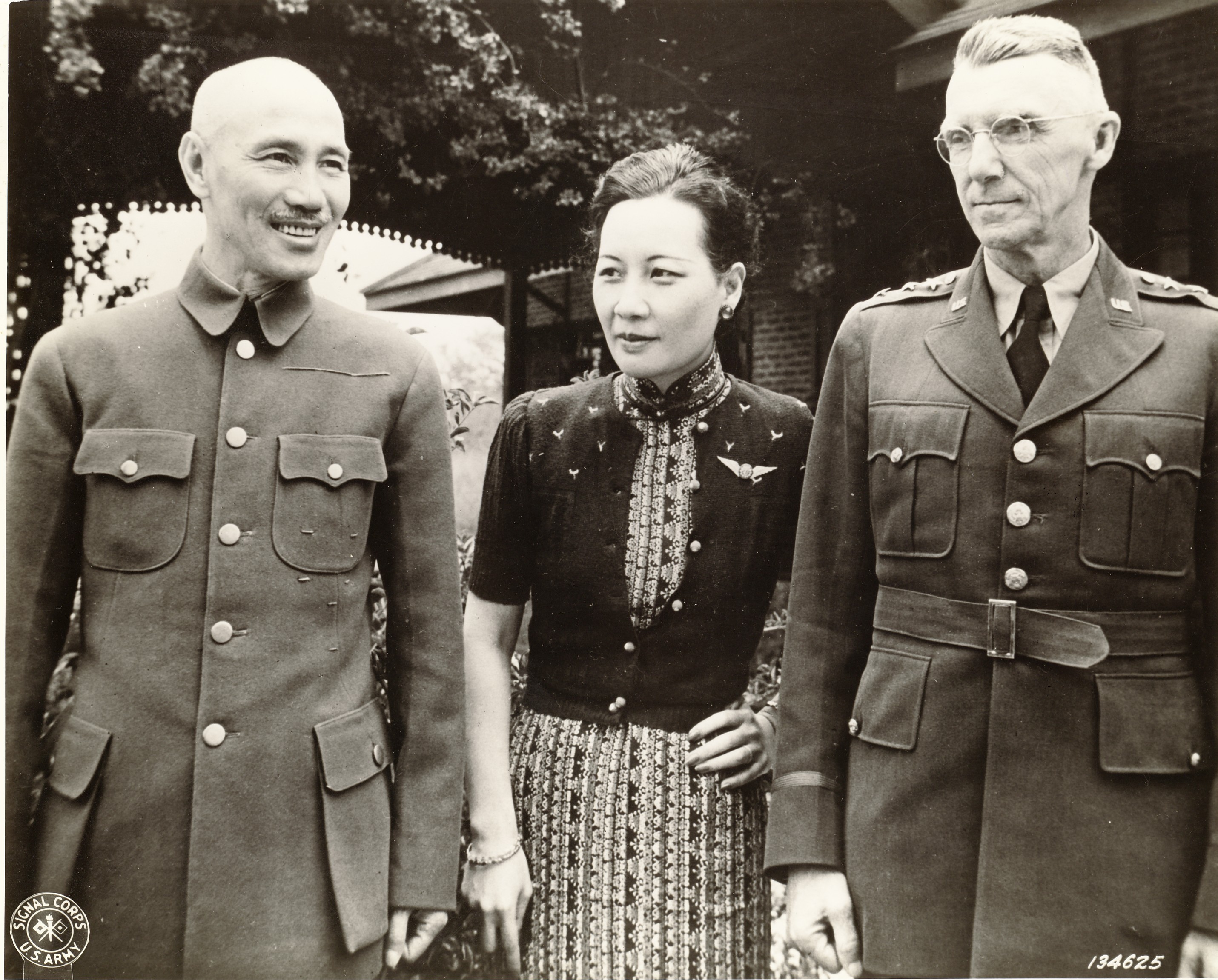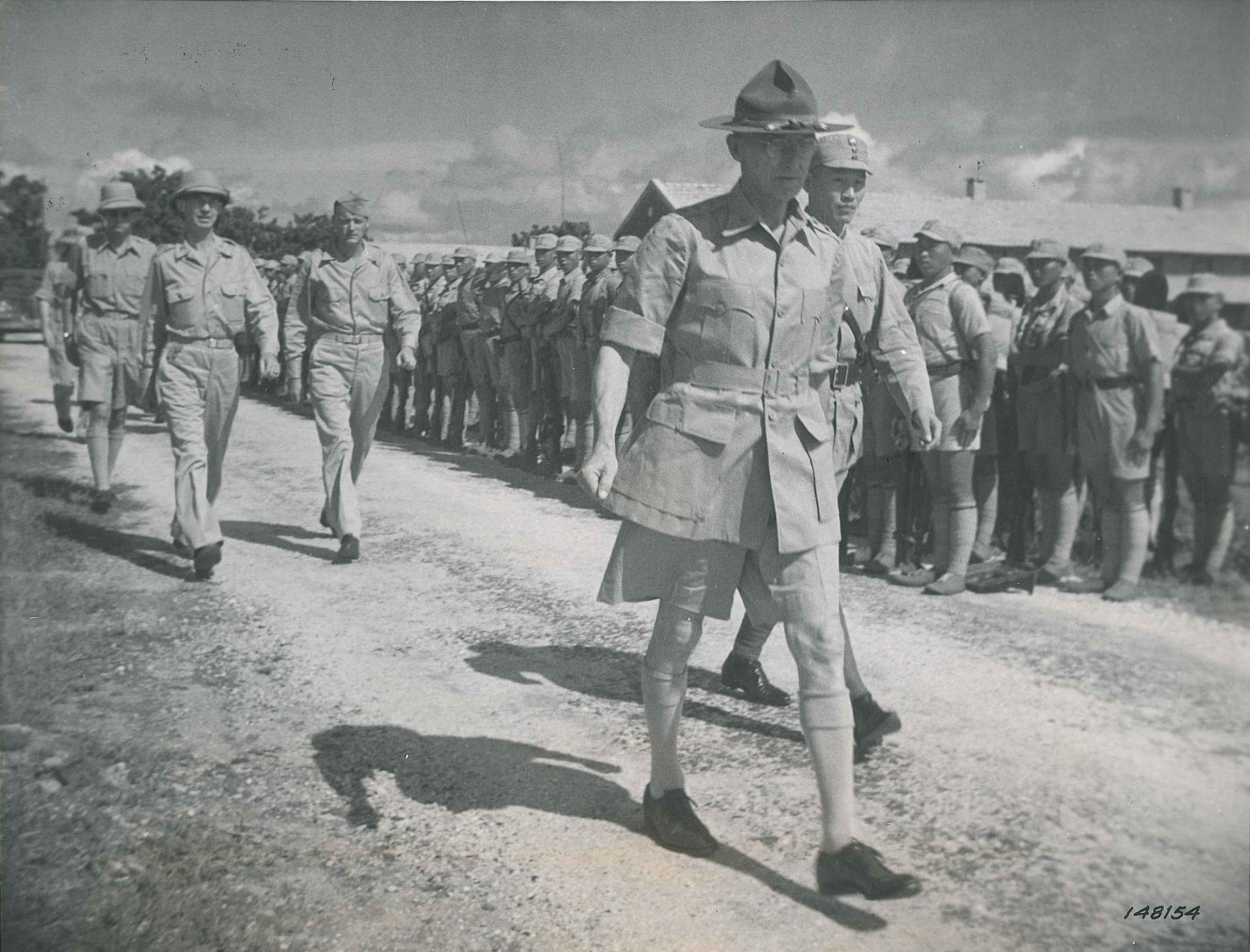Lt. Col. George C. Marshall served as executive officer of the 15th Regiment in Tientsin, an area in northern China, from 1924 and 1927. During that time, he met Joseph Stilwell who was a battalion commander with the 15th Regiment and would later become one of “Marshall’s Men” as an instructor at Fort Benning, Georgia. While in China, Marshall witnessed the beginning of the Chinese Civil War in which Chiang Kai-shek led a successful campaign against local warlords in that region, expelling many Communists. Marshall told biographer Forrest Pogue that finding Stilwell was “a little like Lincoln finding Grant.” On his time at Fort Benning, Marshall said: “Stilwell, poor devil, would fight. He had little to do with, but he was a fighter…(he) was brilliant at Benning but difficult. The commandant met me three times to relieve him.”
 Stilwell excelled in training troops, was fluent in Chinese, and knew the regions of China. In 1939, General Marshall, now Army Chief of Staff, assigned General Stilwell to organize and train Chinese forces against the Japanese. After the United States declared war on Japan, Stilwell would simultaneously be chief of staff to Chiang Kai-shek, commander of U.S. Forces in the China-Burma-India Theater and administrator of Lend-Lease aid to China. According to Marshall, Stilwell was “qualified for any command in peace and war,” but knew he was notoriously difficult and profane. “Stimson really appointed Stilwell,” Marshall said, “it was my authority, but I thought if he wanted to fight the China battle, by God, it was all right with me. (He) did a fine job with Chinese over violent opposition of Chiang Kai-shek. If you could have extracted Stilwell’s tactlessness, he would have been brilliant. (He) was hurt by his tactlessness. He made the mistake of talking to his staff, and they talked. I never talked to my staff about MacArthur.”
Stilwell excelled in training troops, was fluent in Chinese, and knew the regions of China. In 1939, General Marshall, now Army Chief of Staff, assigned General Stilwell to organize and train Chinese forces against the Japanese. After the United States declared war on Japan, Stilwell would simultaneously be chief of staff to Chiang Kai-shek, commander of U.S. Forces in the China-Burma-India Theater and administrator of Lend-Lease aid to China. According to Marshall, Stilwell was “qualified for any command in peace and war,” but knew he was notoriously difficult and profane. “Stimson really appointed Stilwell,” Marshall said, “it was my authority, but I thought if he wanted to fight the China battle, by God, it was all right with me. (He) did a fine job with Chinese over violent opposition of Chiang Kai-shek. If you could have extracted Stilwell’s tactlessness, he would have been brilliant. (He) was hurt by his tactlessness. He made the mistake of talking to his staff, and they talked. I never talked to my staff about MacArthur.”
After numerous complaints about Stilwell from Chiang, a proposed message to Stilwell was drafted on October 19, 1943. Marshall wrote: “It has been decided that in view of the attitude of the Generalissimo it will be necessary to replace you in your present position in the Far East.” The message was not sent when it was determined that Roosevelt was unsure of a replacement. Relations between Stilwell and Chiang continued to deteriorate. “I wanted him to leave,” Marshall said, “because he had been mistreated so, but he wanted to stay. I said, ‘Then stop your outrageous talking.’ He said he hadn’t called Chiang ‘Peanut’ openly. I said, ‘My God, you have never lied. Don’t now.”
Roosevelt attempted to give Chiang an ultimatum in a stern letter (drafted by Marshall):
I have urged time and again in recent months that you take drastic action to resist the disaster which has been moving closer to China and to you. Now, when you have not yet placed General Stilwell in command of all forces in China, we are faced with the loss of a critical area in East China with possible catastrophic consequences. The Japanese capture of Kweilin will place the Kunming air terminal under the menace of constant air attack, reducing the hump tonnage and possibly severing the air route.
 Marshall told Pogue: “Stilwell was getting very little. So he was having a hard time getting a fight out of his people. He was always trying to get the Generalissimo to use these communist troops. You see, they were supposed to have an army of three million men at the time.” Unfortunately, Chiang was more concerned about using Lend-Lease aid to fight Chinese communists rather than their common enemy—the Japanese.
Marshall told Pogue: “Stilwell was getting very little. So he was having a hard time getting a fight out of his people. He was always trying to get the Generalissimo to use these communist troops. You see, they were supposed to have an army of three million men at the time.” Unfortunately, Chiang was more concerned about using Lend-Lease aid to fight Chinese communists rather than their common enemy—the Japanese.
“I recall at the meeting of the British chiefs at the time of the Normandy landing,” Marshall said, “Brooke took me to the window and said, ‘We feel we will have to ask for Stilwell’s relief.’ Mountbatten was then brought in. I said, ‘My God, Mountbatten, you don’t have the nerve to ask me to relieve him when he is the only one who will fight.’ He said, “We are going to relieve them all.’ I said, “All right then.”
After putting up as much of a fight as he could, Stilwell was finally recalled from his command on October 19, 1944.
To learn more about Marshall’s own experience (and failure) with Chiang Kai-shek as President Truman’s special envoy to China in 1946, please visit the museum’s current exhibit Frenemies, Friend of Today, Enemy of Tomorrow.
